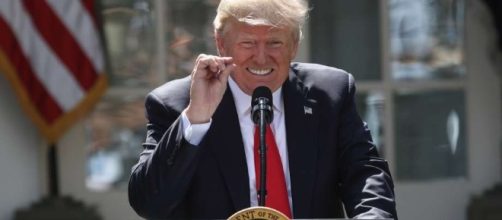Donald Trump confirmed the withdrawal of the United States from the international agreement in his speech from the White House which immediately generated controversy. The U.S. president cited controversial studies and took some scientific facts out of context to try to downplay the importance of fighting global warming and emphasizing the cost to the U.S. economy as it relates to the Paris accord.
A little amount
Donald Trump assured that even if the Paris agreement was fully implemented, in full compliance with all countries, it is estimated that this would only result in a reduction of two-tenths of 1 degree Celsius by 2100, which is "a very small quantity." To minimize the impact of the Paris agreement, Donald Trump drew on a panel of experts from the highly respected Massachusetts Institute of Technology (MIT).
They decided in 2015 that the climate commitments made by the signatories to the agreement would reduce the rise in temperatures by 0.2 °C.
But by 2016 these same experts revised their conclusions and now believe that the efforts of the international community will limit the rate of warming by nearly 1 °C. "If we don't do anything, we might shoot over 5 degrees or more and that would be catastrophic," said John Reilly, the main author of the MIT study, following Donald Trump's statements.
GDP reduced by $3 trillion for the United States
This is one of the rare moments when Donald Trump did not mention "billions and billions," but a huge amount. This estimate comes from a March 2017 report by the National Economic Research Associates which assessed the economic impact for the United States of the Paris agreement by 2040.
Also, the President claimed that the Paris Agreement would cost America nearly 2.7 million jobs by 2025.
China can continue for 13 years, not us
Donald Trump built on Beijing's commitments at the end of COP 21 to depict a two-speed future. China warned that its carbon emissions would continue to increase by 2030, before declining.
Over the same period, the United States pledged to reduce their emissions by more than 25%. In fact, Beijing seems to be ahead of its own agenda: its efforts to reduce its carbon footprint -- such as the recent closure of 103 coal mines -- should enable it to meet its peak emissions target by 2020.
Furthermore, there is no obligation on the United States to honor its climate commitments. They are not legally binding and Donald Trump, like any other leader of a country signing the Paris Agreement, may decide to ignore them.


